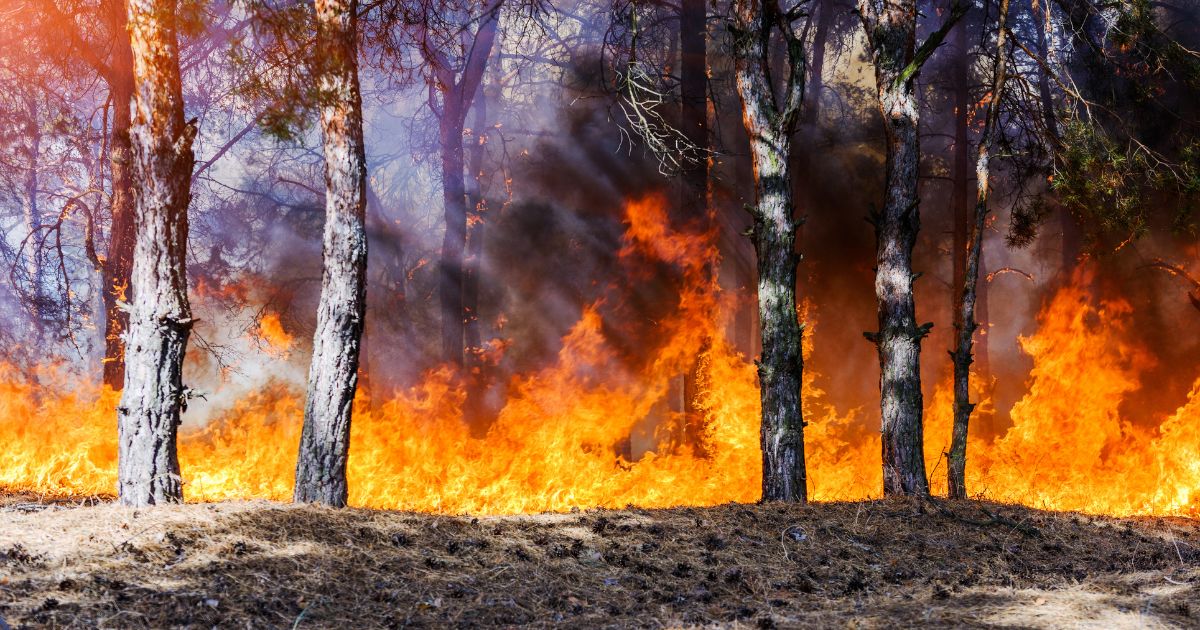Can My Homeowners Insurance Policy Cover a Wildfire?

The recent smoke over much of the Northeast from the Quebec wildfire has made more people afraid of a potential wildfire damaging their homes. With rising temperatures and prolonged droughts, wildfires are no longer limited to the West. Homeowners often wonder what types of damage their insurance policy will pay. The answer is that it depends on the specific language of your contract.
Wildfires can cause damage to your home in two ways:
- The fire can damage the structure and destroy your home.
- The smoke from the fire can damage and contaminate your home, destroying your possessions and staining the interior.
Homeowners insurance policies are usually written in a way that covers all damage to your home from a fire. It does not matter whether the fire started in your home or began elsewhere and reached your home – you may be covered. However, you do not want to wait until you have a fire to see if it is covered. It is always crucial to take no chances and review the terms of your policy.
Everything depends on the exact language of your policy. If you have general coverage in the event of a fire, you should be covered from wildfire damage. If your policy covers specific types of fires and does not explicitly include wildfire damage, you may not be covered. Like every homeowners insurance policy, the ultimate coverage determinant depends on the exact language in the definitions and the policy exclusions.
Potential Damages Covered by Your Homeowners Insurance Policy
If wildfire coverage is part of your policy, you will be compensated for the following types of damages:
- Dwelling coverage to pay for repairs and rebuilding.
- Personal property compensation or replacement.
- Temporary living expenses while your home is repaired.
- Potential coverage for harm done to landscaping.
Things Could Change if Wildfires Become a Growing Problem
If an insurance company has continuing and sustained losses in a particular area or from a type of damage, they may add an exclusion to your policy or try to re-price the risk. The insurance company cannot take away current coverage that you already have, but it can change the language when you renew your policy. Accordingly, you should closely check all clauses of a renewed policy to ensure you have the coverage you need. If the insurance company chooses to exclude wildfire damage, you may need to pay extra for a rider or endorsement if the coverage is not afforded by the principle coverage.
For example, wildfire coverage may differ in California, where there is a higher risk of wildfire, than in New Jersey, where there is a lower risk. Some homeowners insurance companies have stopped offering policies altogether in areas with a high risk of wildfires. Others may have a high deductible that applies explicitly to wildfires. Those insurance companies that do offer coverage have drastically raised initial policies and renewals.
For now, residents in the Northeast may not need to worry as much about their homeowners insurance not covering wildfire damage. However, the situation may change if wildfire becomes a widespread problem on the East Coast. You should read through your policy and all the applicable exclusions if concerned. If your home has suffered some damage from a wildfire, and the insurance company refuses to cover your claim, you should contact an experienced lawyer.
Contact Our New Jersey Insurance Coverage Lawyers at Herold Law, P.A. to Discuss Your Legal Situation
If you have a denied claim or the insurance company is not compensating you fairly, our experienced New Jersey insurance coverage lawyers at Herold Law, P.A. can help. Call us today at 908-679-5011 or contact us online to schedule an initial consultation. With offices in the Plainfield area, including Warren, New Jersey, we proudly serve clients across New Jersey.




 908-679-5011
908-679-5011



